UM-Flint's Wyatt Exploration Program connects students with Cuba's people, culture and history
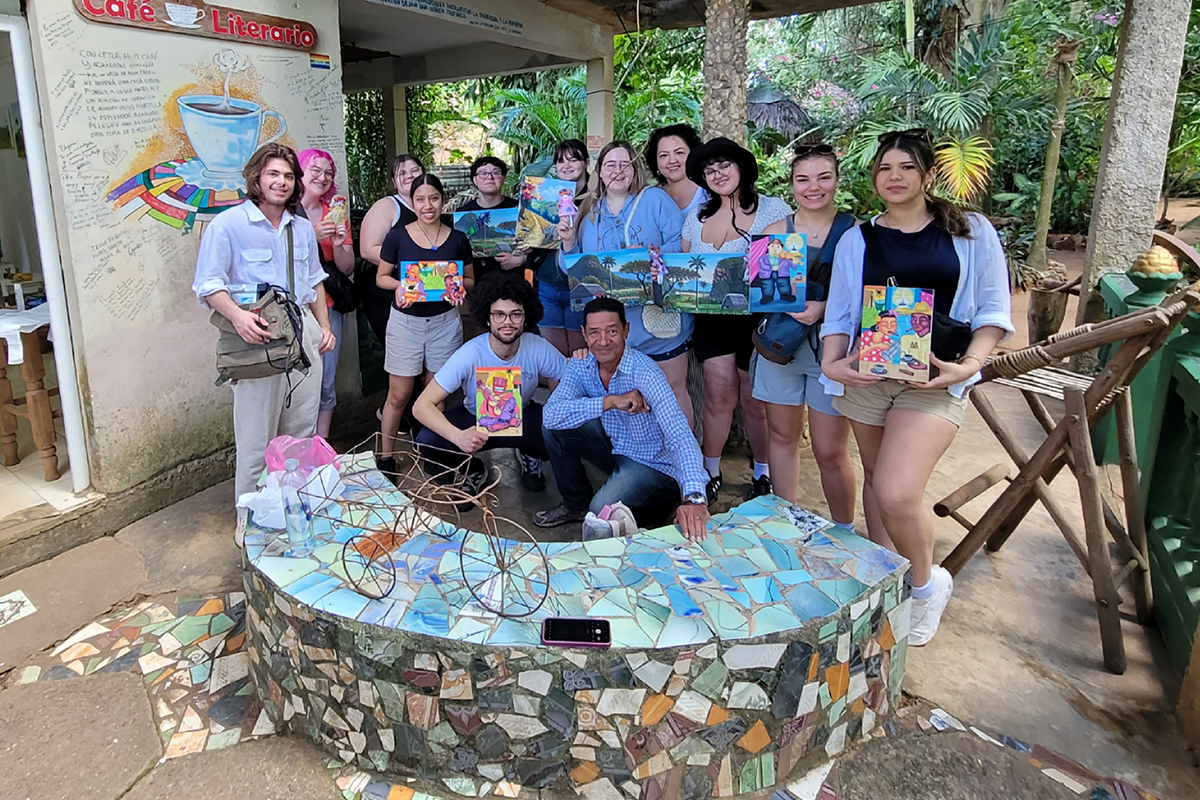
"The Cuban people are some of the nicest you'll ever meet; they're so brave and resilient, and our host families were incredibly kind and generous. Connecting with them was my favorite part of the experience," said Drew Conner, a junior computer science major from Flint who visited Cuba this March as part of the 2025 Wyatt Exploration Program.
"It surprised me because it's so different from here, where I feel like we try to avoid each other when walking down the street," Conner said. "Everyone greets each other there, even in a big city like Havana. One of our faculty guides, Stephanie Vidaillet Gelderloos, would say that they've adopted the socialist ideal, that everyone is somebody's brother or sister, and you could feel that familial vibe everywhere we went."
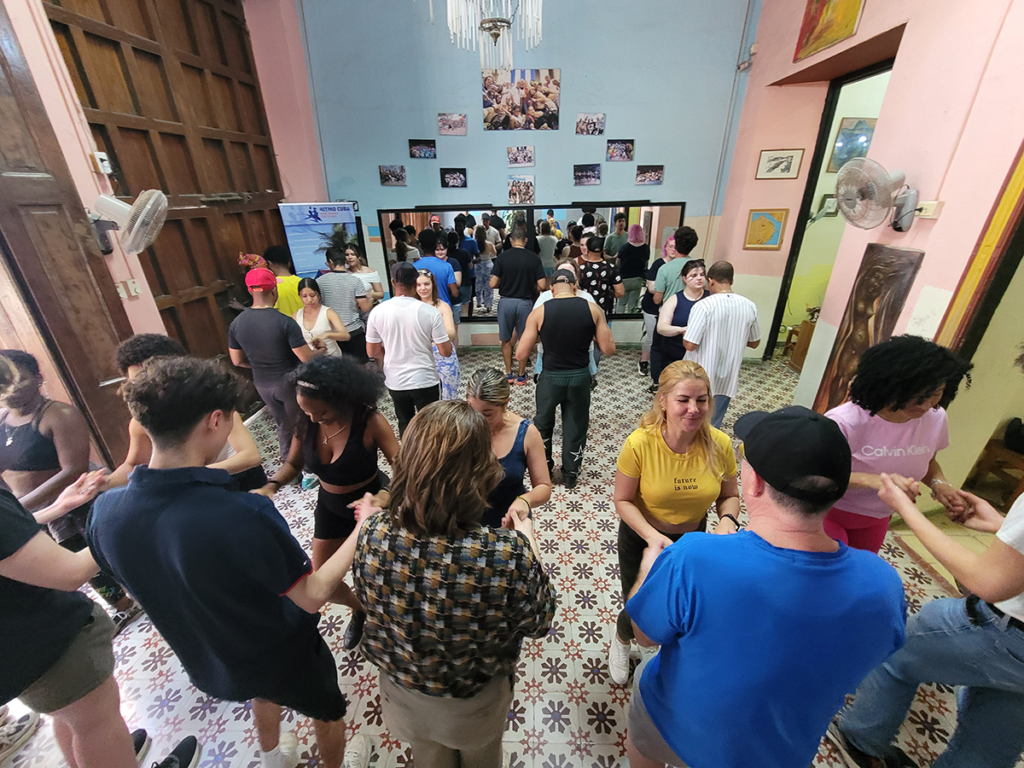
Conner was one of 14 students who took part in the fully funded Wyatt Exploration Program trip to Cuba. Sponsored by the University of Michigan-Flint history program and supported by the Dorthea E. Wyatt Endowment, programming for every trip begins each year during the fall semester with a series of on-campus events that explore the culture and history of the selected destination. For the journey to Cuba, the history program presented a documentary series about Cuban culture, collaborated with the student organization Latinos United for Advancement to host salsa dance lessons and a social event, and featured an expert lecture on historical Cuban artifacts. UM-Flint students who attended the events were eligible to apply for the study abroad opportunity.
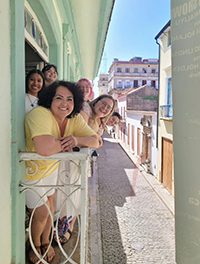
While Cuba was selected by professor of history Thomas Henthorn, Vidaillet Gelderloos, lecturer IV in the English program and advisor for LUNA, was also instrumental in the trip's planning process and one of three UM-Flint faculty members on the trip. "This was the first time that the Wyatt program was open to all students, regardless of their major, so I wanted to make sure that the trip was culturally relevant, that students had an opportunity to speak Spanish and connect with local families," said Vidaillet Gelderloos. "We selected a variety of cultural activities in and around Havana and the rural town of Viñales, specifically to offer a well-rounded perspective of Cuban life. The students were all in, even when they encountered difficulties related to access to modern conveniences or limited food options. They fully embraced Cuba and its people."
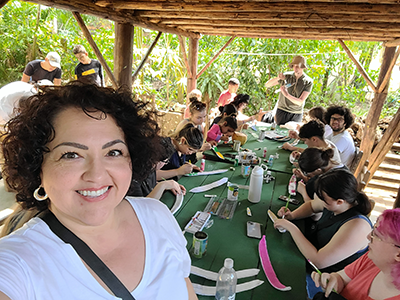
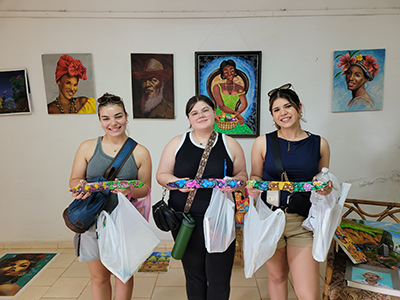
Students painted seed pods at the Patio del Pelegrín.
For Patience Jones of Flint, a junior majoring in fine arts, visiting the artist colony Patio del Pelegrín on the way to Viñales was a fascinating experience.
"What stood out to me is how they reuse everything there; there was no texture to their paintings, they spread the paint so thinly because they have to be economical with their supplies," said Jones. "It's a mentality that I plan to apply to my own work, to be less wasteful and more economical, not to overuse things."
In Viñales, the group visited tobacco and sugar plantations, where they learned about the local agriculture, and then embarked on an hour-long horseback ride through the Viñales Valley, a UNESCO World Heritage site. "The landscape was so diverse, from mountains to caves to palm trees, it was a different kind of atmosphere compared to Havana; it just felt more free," said Paulina Rivera, a junior from Ortonville studying human biology with a concentration in pre-med.
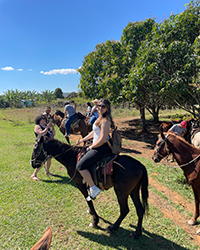
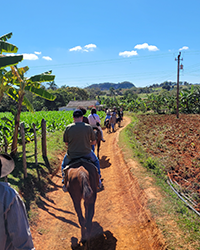
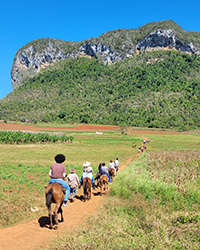
The group rode on horseback through the Viñales Valley.
Back in Havana, the group visited cultural sites such as the Fidel Castro Center, the Fine Arts Museum, Revolution Square and the José Martí Memorial, and Casa de Africa. They also attended a lecture at the University of Havana, where they gained a deeper understanding of Cuban history. Visiting the Memorial de la Denuncia was particularly eye-opening for many students.
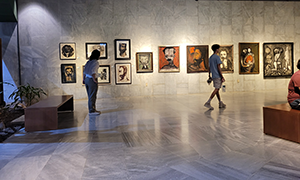
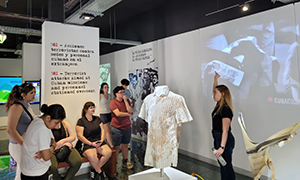
Students toured several museums, including the Museum of Fine Arts and the Memorial de la Denuncia.
"I knew some of the history, but I learned more about the cycles of violence between the U.S. and Cuba after the revolution, including some horrible things that the U.S. did to destabilize the country and inspire a regime change," said Evan Karr, a senior economics major from Davison. "It's told from their point of view, of course, so you know that there's some propaganda there, but the fact that we don't learn about those things is also another form of propaganda. It's a lot more peaceful there now. Instead of engaging in violent tactics, the U.S. is trying to use economic tools to inspire them to change, and our guide was very outspoken about how many Cubans want more capitalism, so maybe change will come."
Ethan Sage, a sophomore from Howell majoring in political science and history, echoed Karr's perspective.
"It has inspired me to think very critically about the information I receive, and I've already seen changes in how I react to and engage with information. When I started at UM-Flint, I was much more reactionary, and I struggled with sharing my point of view when I disagreed with people," Sage said. "Visiting the Memorial de la Denuncia showed me how there are multiple perspectives to every story. Now I am much more skilled at absorbing different ideas, documenting them in my mind and using that to make more sound arguments in debates on ideology, law, or politics. I wouldn't have guessed that would be one of my main takeaways from this experience, but it has made a major impact on me."
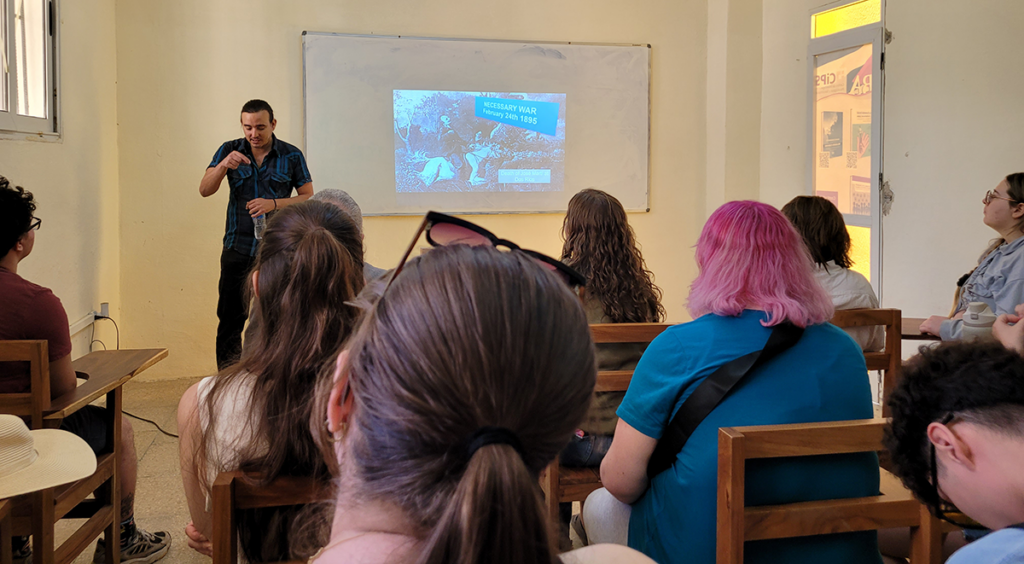
Other cultural experiences that impacted the group included their visit to Old Havana. "There are so many remnants of the past (there), older architecture and buildings that meant something to their culture. It was the site of the original settlement in Cuba," said Maggie Orwig, a senior from Lapeer in the social studies teacher certificate program. "Our guide shared a lot about how life has changed through the years, but also how they're kind of 'stuck,' because of their political and economic issues. All the cars from the 1950s are a symbol of their lack of progress, of how they're frozen in time, in a way. Having the opportunity to be in the place where the history we were learning about actually occurred has inspired me to bring that experience into my work as an educator. I think it's essential to express different perspectives and to encourage curiosity about what we learn, who is telling the story, and to interrogate its source. My goal is to continue to travel, expand my knowledge and share that with my community here in Michigan."
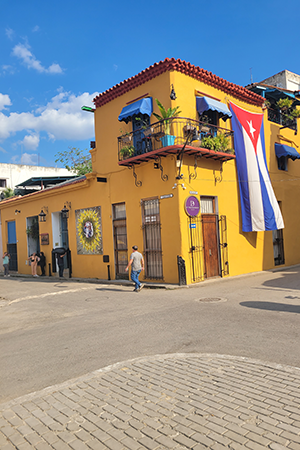
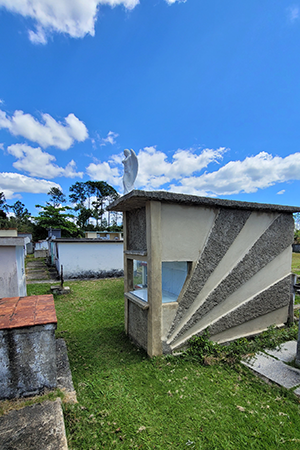
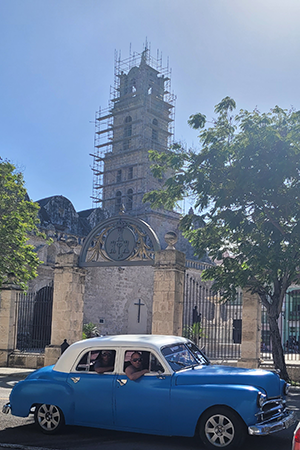
The group went on walking tours of Old Havana and various cemeteries.
Connecting with Cuba's people, learning about its history, and experiencing its culture had a profound impact on all the students. However, one of the most significant aspects of the experience was the lifelong friendships they formed among themselves.
"The other students were truly amazing. We have such different personalities and are all studying different things, so we had different perspectives and interests to share," said Rivera. "For anyone who hasn't gone on a Wyatt trip — or any study abroad experience — do it if you can! You'll make friends and connections with people who share the mindset and curiosity to learn. I loved the trip overall, but who I got to experience it with was special."
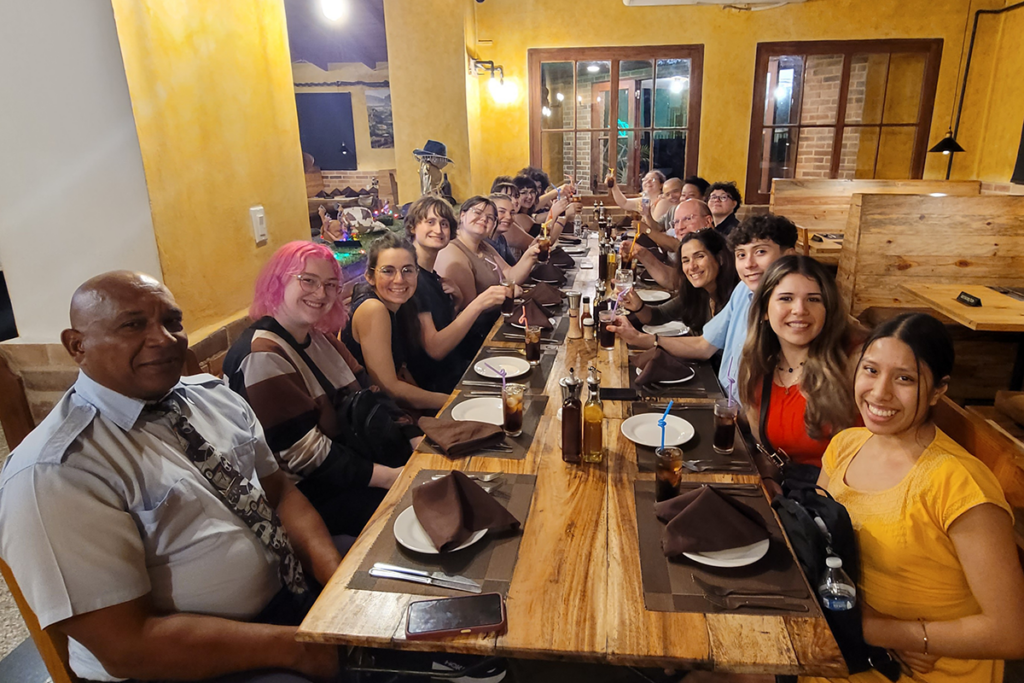
"I am a transfer student, and when I told people that I was going on this trip, they were shocked that a program like this exists at UM-Flint. I know that I wouldn't have ever had this opportunity at the school I was at before or a bigger university," said Elizabeth Huggler, a sophomore fine arts major from Otisville. "This is just an example of what you get to experience at UM-Flint — the professors are great, you get one-on-one attention and programs like Wyatt offer a unique way to expand your knowledge and experience. I tell everyone that if you're considering UM-Flint, do it. You're not going to have a better experience anywhere else."
Learn more about studying history and future Wyatt program offerings on the UM-Flint history program webpage.
Related Posts
No related photos.
Kat Oak
Kat Oak is the communications specialist for the College of Arts, Sciences, and Education. She can be reached via email at katheroa@umich.edu.